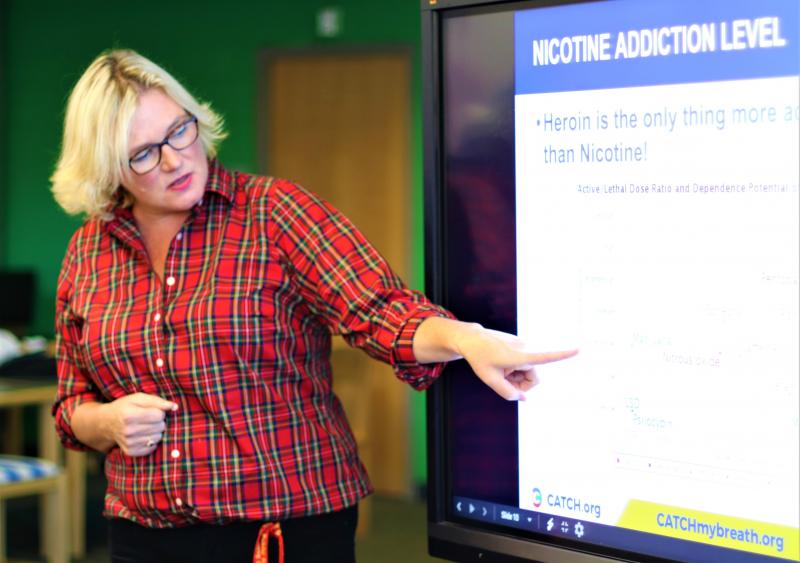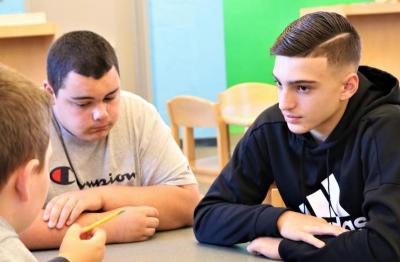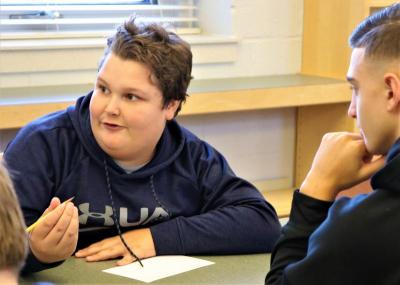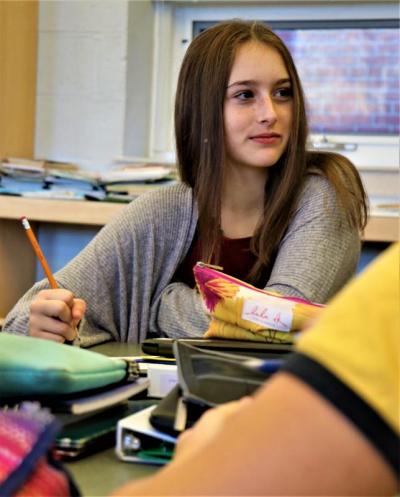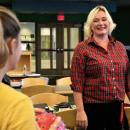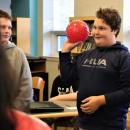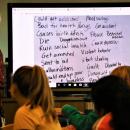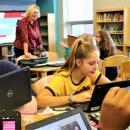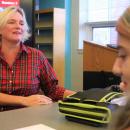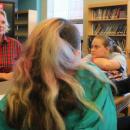Making the town healthier, one student at a time
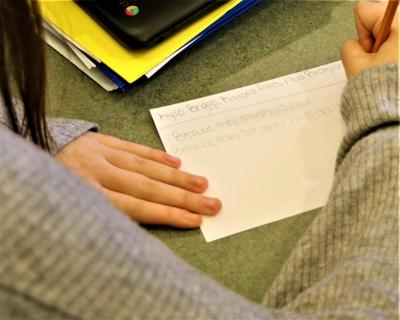

Every middle school student at Wareham Public Schools is getting extra life lessons when it comes to e-cigarettes and the dangers of vaping.
“That’s really important to me that children know how dangerous and what a serious issue addiction is,” said health school Harriette Sullivan. "Whether it's nicotine products or drugs or anything else, children need to know why and how to say ‘no’ to these substances when offered.”
She is teaching seventh graders about techniques to resist peer pressure, the dangers of drug use and misleading advertising tactics. The curriculum is part of the CATCH My Breath program.
The program was developed by The University of Texas Health Science Center at Houston School of Public Health to equip students with the knowledge and skills they need to make informed decisions about the use of E-cigarettes. It launched five years ago with a pilot program and now serves children in 10,000 schools and communities across the US.
Last year, Sullivan took the initiative to implement the program in the Wareham school system. Interacting with children every day while also in the process of obtaining her Doctorate in Education from Northeastern University, she emphasized the importance of health lessons during childhood.
“I would like to promote health lessons for middle schoolers across the whole state,” said Sullivan, noting that the state of Massachusetts does not require middle schools to provide health classes. Rather, it is up to the school administration to decide if they want to offer them or not.
“I think it is really valuable for kids to have these lessons at this age. When they get to high school, they start encountering people who can offer them substances, so I think it is important they get these lessons now.”
Understanding the danger of e-cigarette ingredients, recognizing substance dependence, learning the cost and ramifications of addiction were amongst the topics students grasped during Sullivan’s class. Students digested information by participating in group discussions and watching educational videos.
Many people are unaware of all the “horrible things addiction does to your body,” said one of the students, Ava Brogioli. Nevertheless, Brogioli remained positive that Sullivan’s class had once and for all, eliminated her desire to experiment with this potentially deadly behavior.
Another student, Kyla Briggs, had been trying to use knowledge from Sullivan’s class to educate her parents on the health effects of cigarette smoking — a pernicious habit her mom and dad picked up at age 15.
“I have been trying to tell them to stop smoking because they can get lung cancer and die,” said Briggs. “I am happy society has more education on smoking now and I know it is better to avoid it. Obviously, my mom and dad didn’t know about the dangers of smoking when they were younger.”
Sullivan’s health classes last for nine weeks. By the end of the last day, students wrote a paper reflecting upon everything they learned. One of the students confessed that she stopped vaping after Sullivan’s class educated her about the ramifications of this habit. She added that she also had been offered drugs but refused to take them, setting a great example for the kids around her. Just one of many people whom Sullivan guided to the right path.



